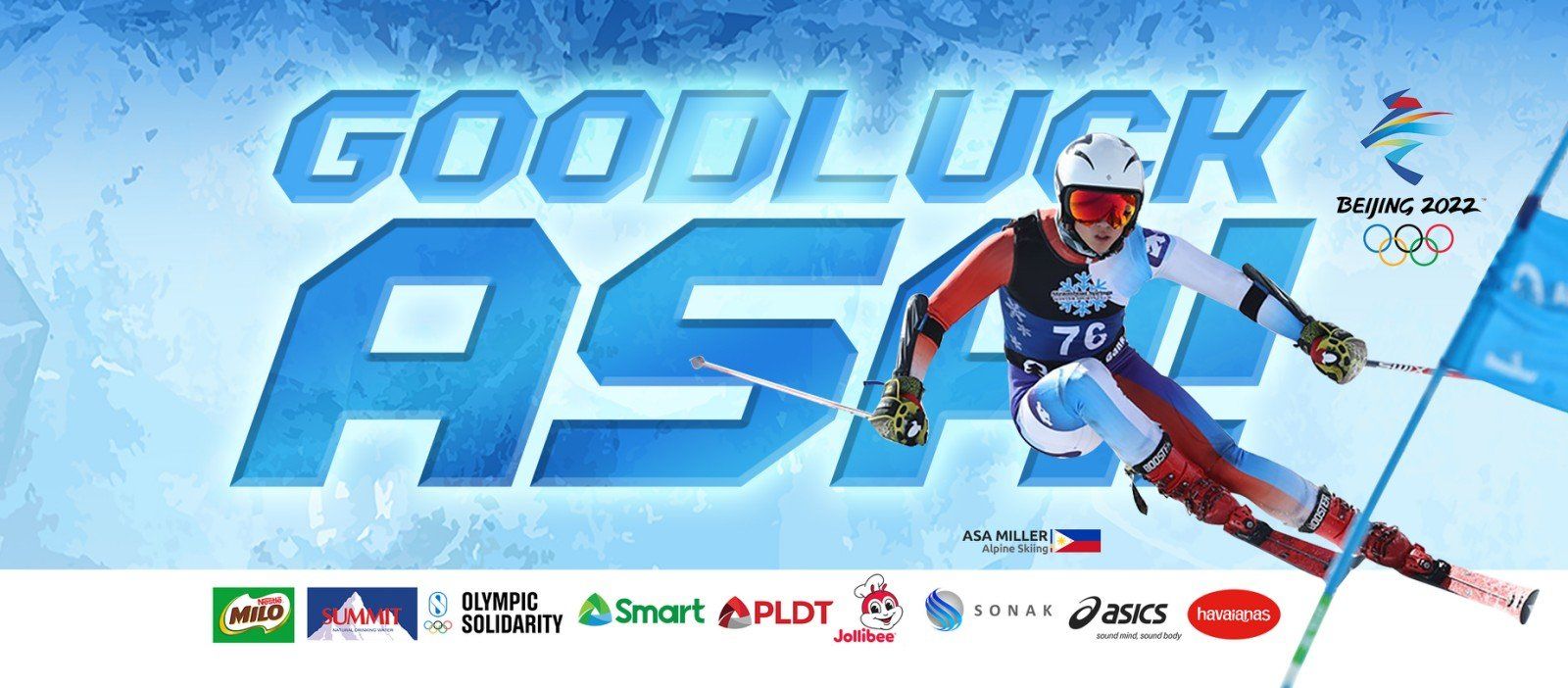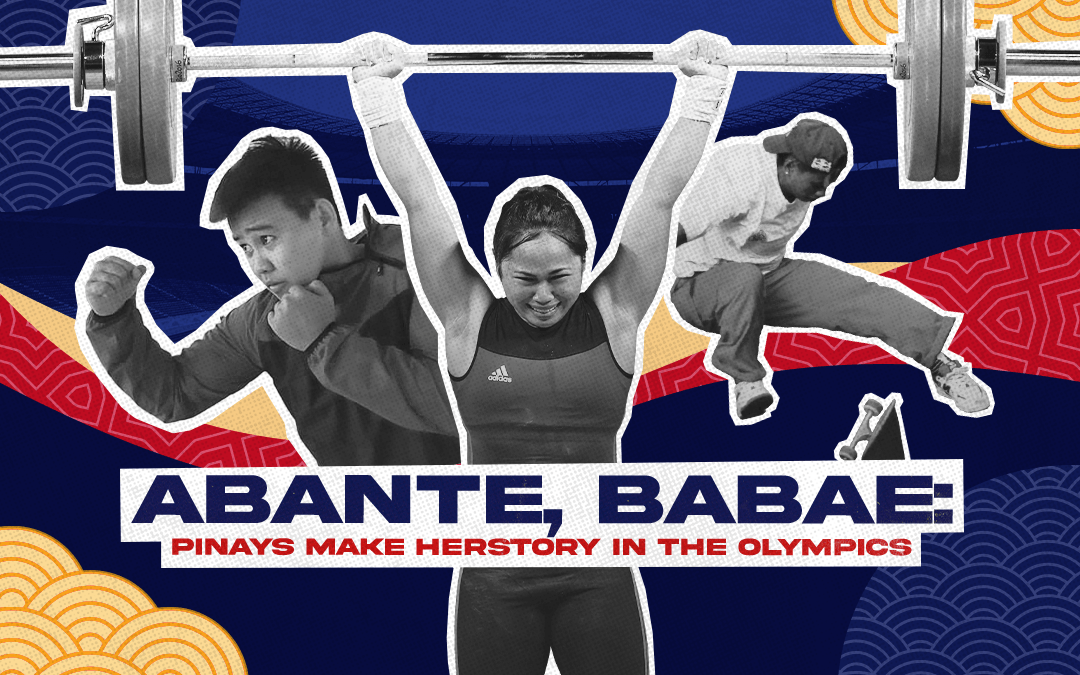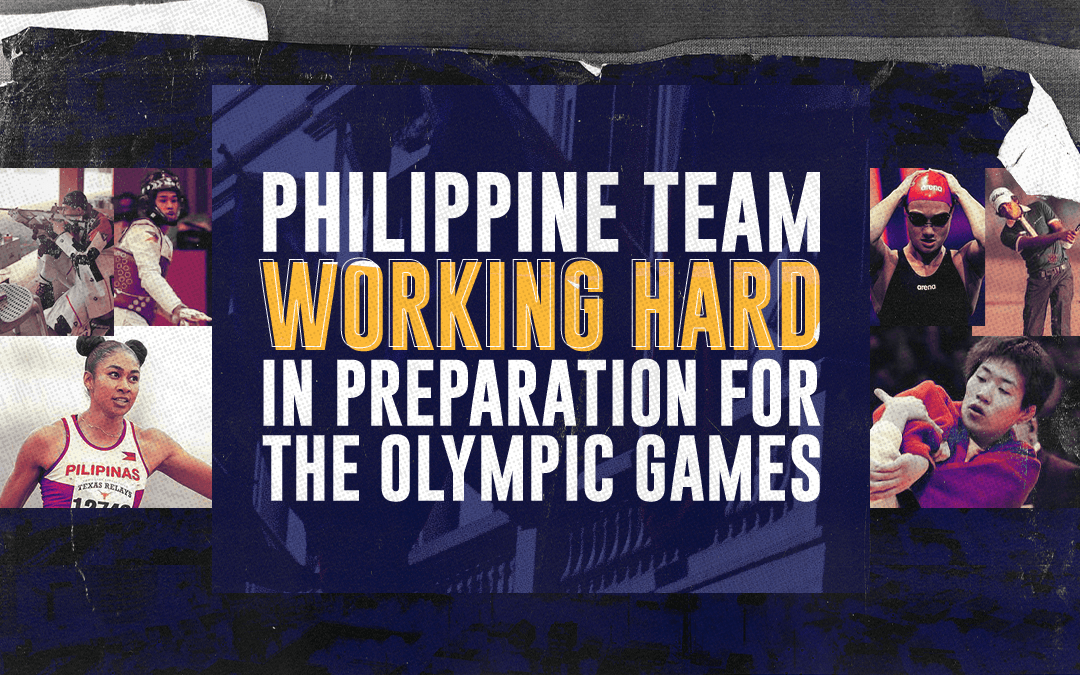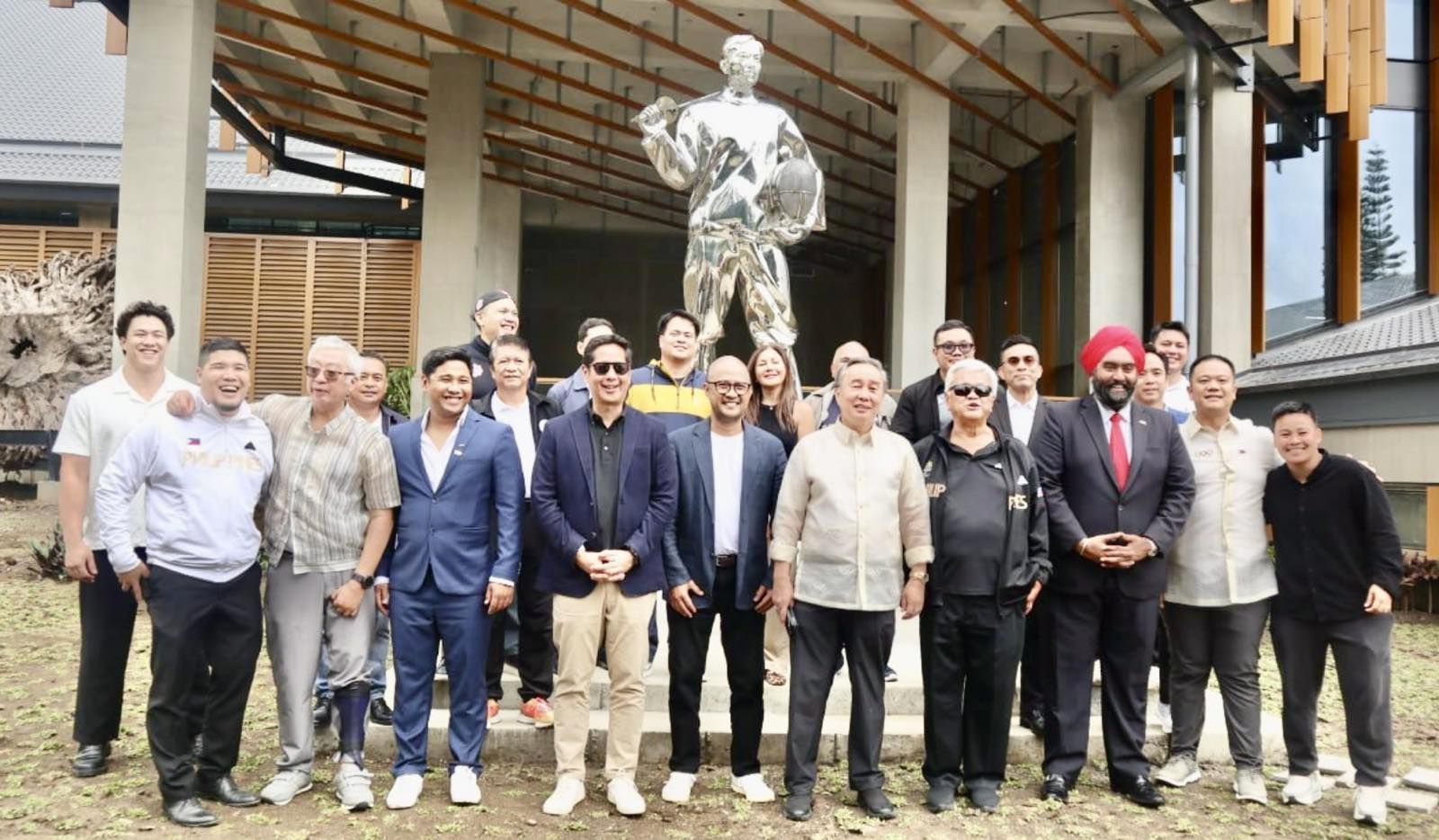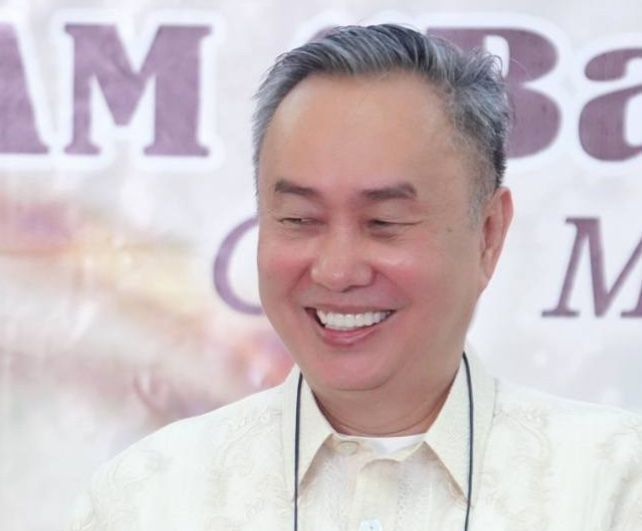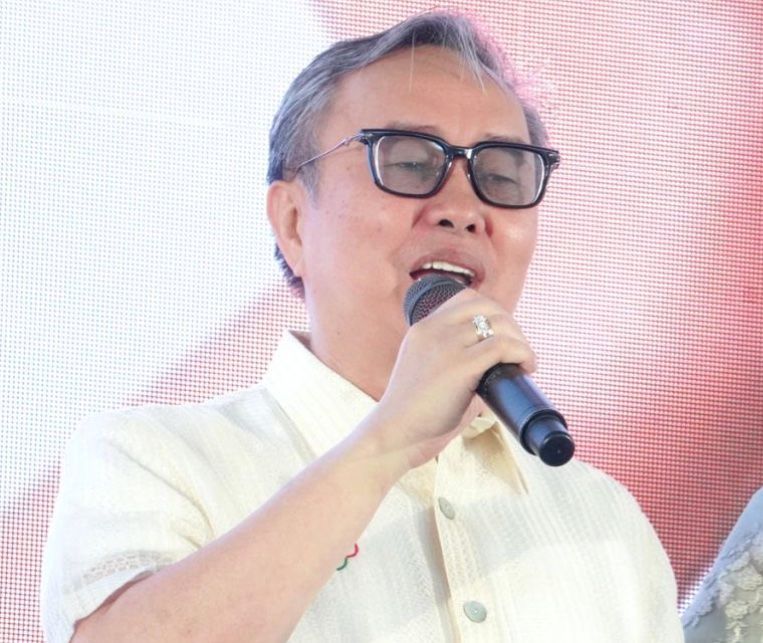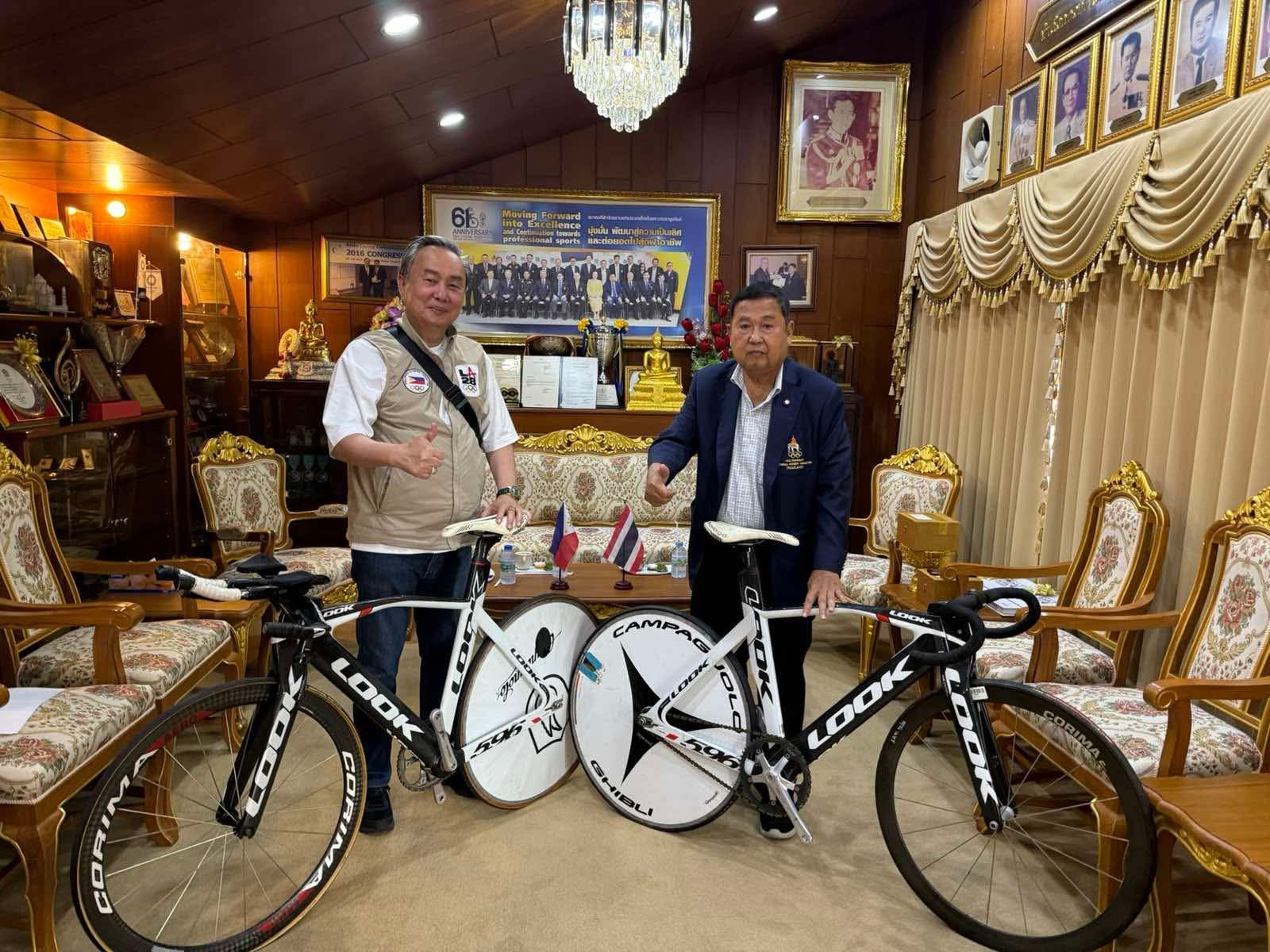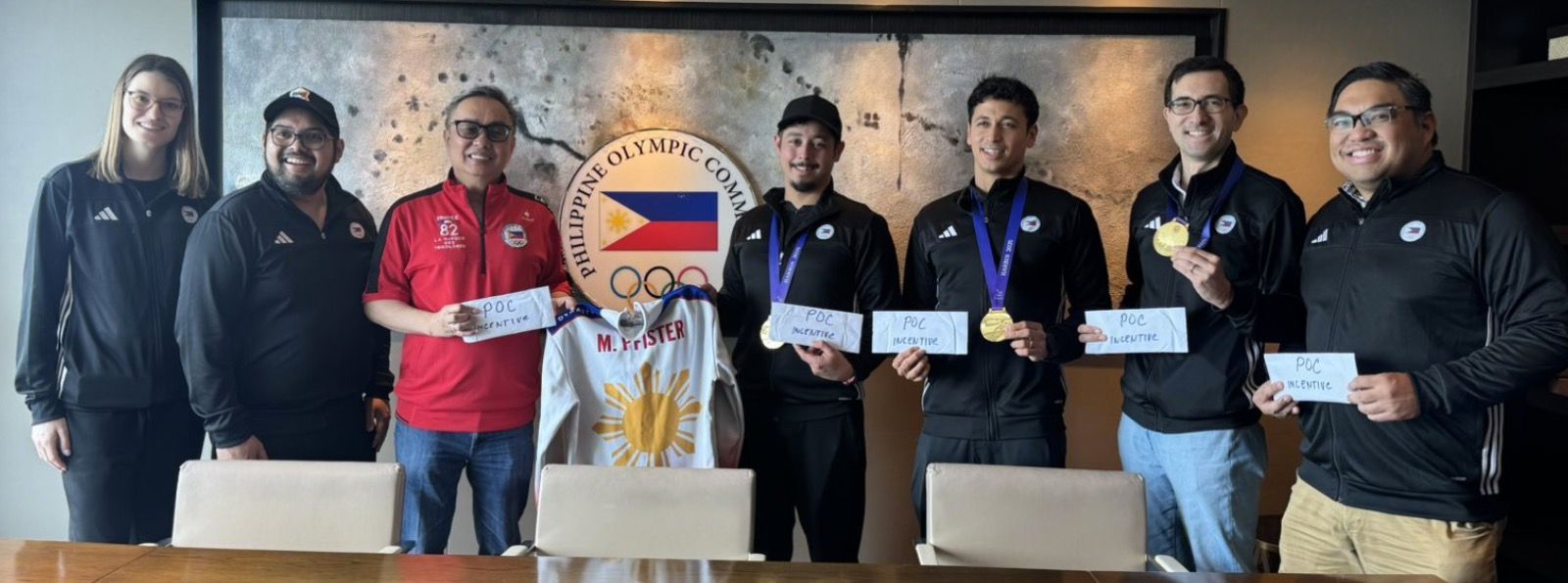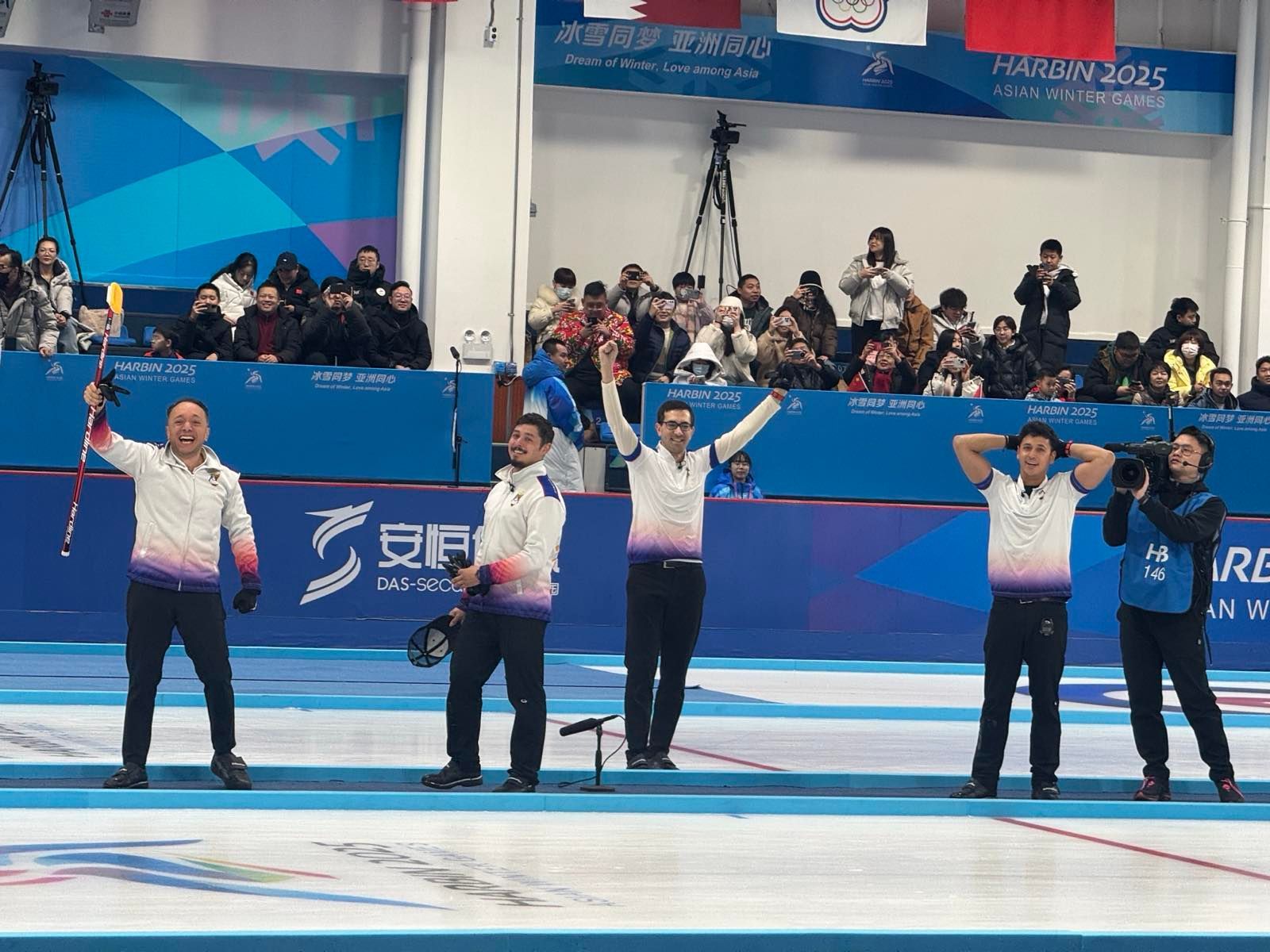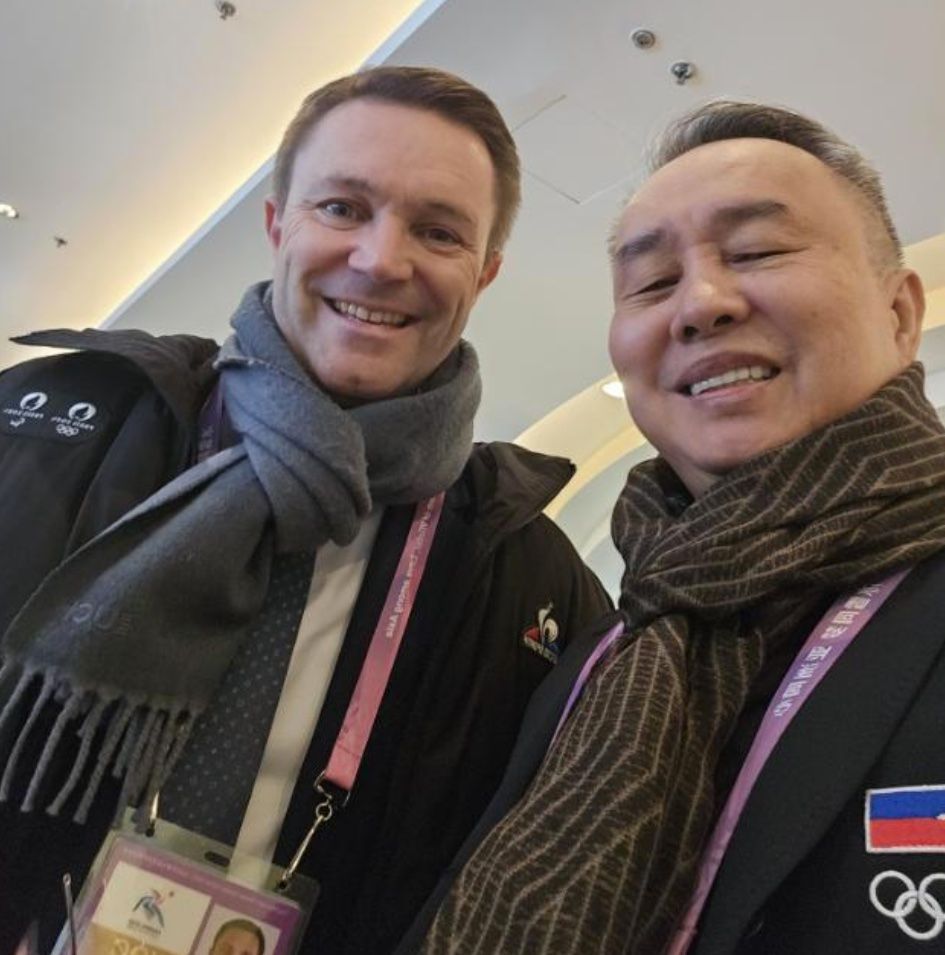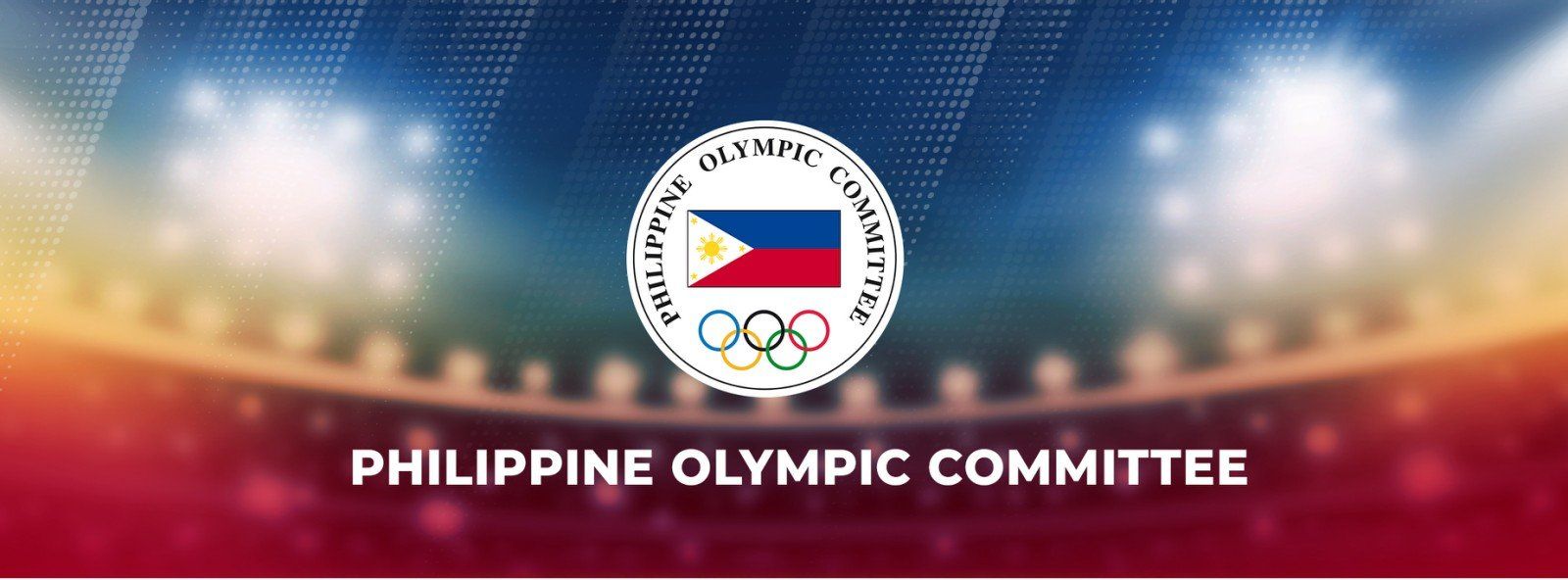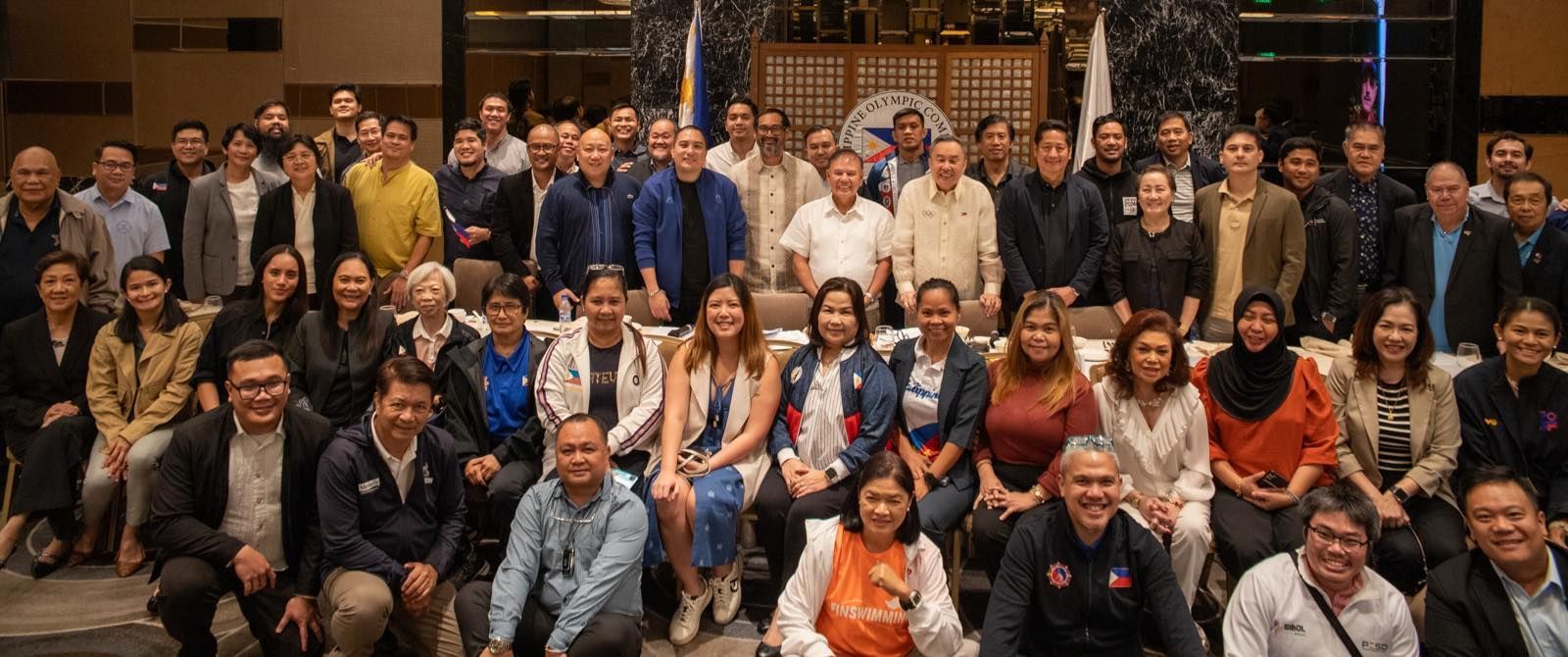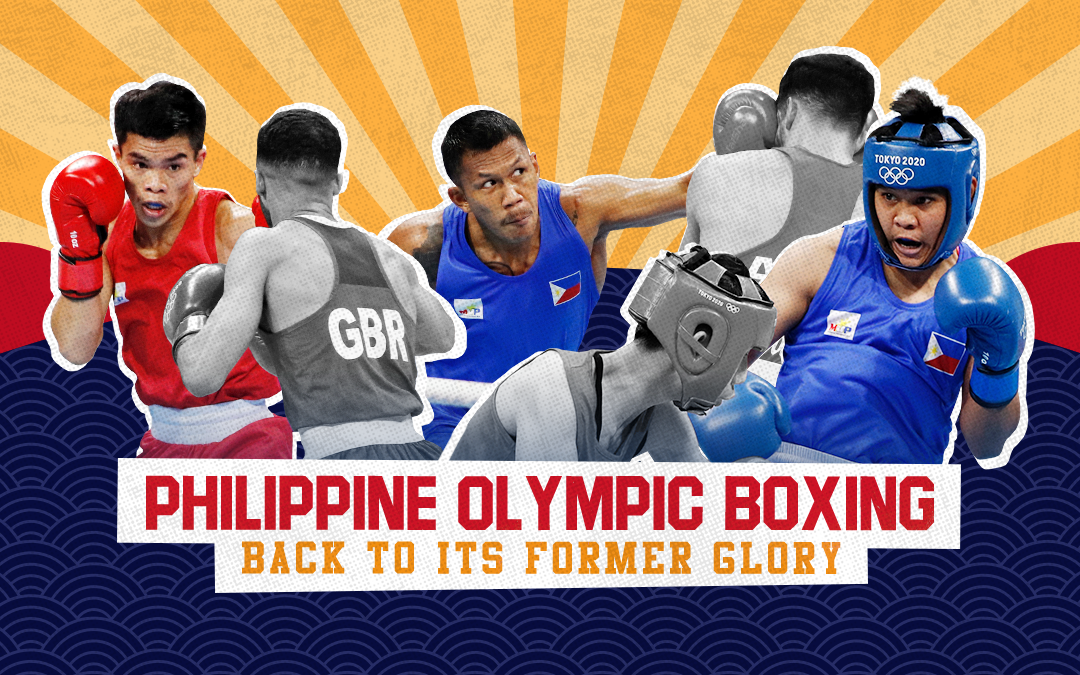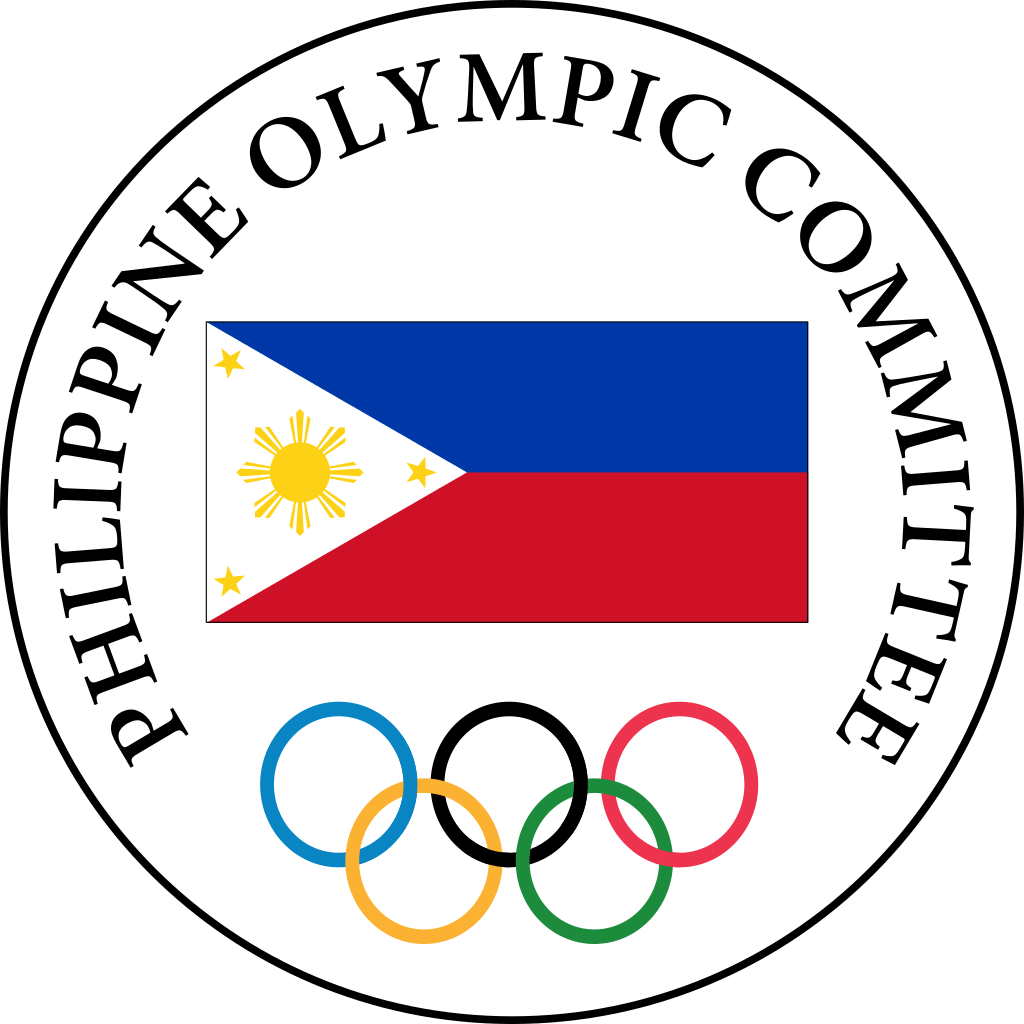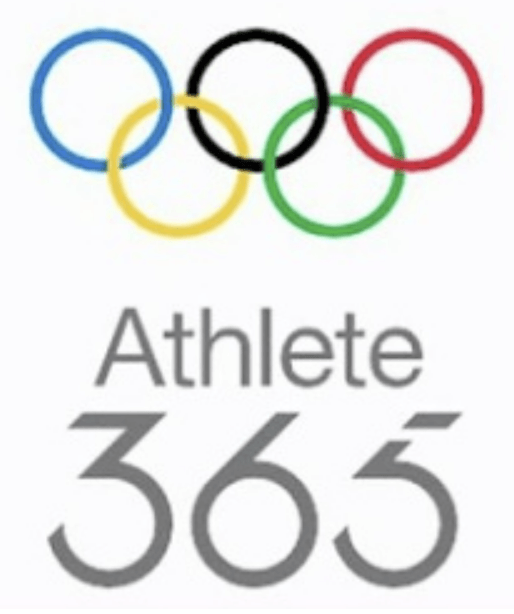Governance
The POC Constitution & By-Laws
PHILIPPINE OLYMPIC COMMITTEE, INC.
2024 BY-LAWS
Under the terms of the “Olympic Charter” there is hereby constituted and ordained the “Philippine Olympic Committee Inc.” hereinafter referred to by its abbreviated title “POC” under the Constitution and By-Laws herein promulgated.
Preamble
The POC, an organization belonging to the Olympic Movement, duly represented by the undersigned, hereby undertakes to respect the provisions of the Olympic Charter and the World Anti-Doping Code and to abide by the decisions of the IOC.
The POC, undertakes, in accordance with its mission and role at national level, to participate in actions to promote peace and to promote women in sport. The POC also undertakes to support and encourage the promotion of sports ethics, to fight against doping and to demonstrate a responsible concern for environmental issues.
Article I - AIMS
Section 1. The POC shall have the following aims:
- To develop, promote and protect the Olympic Movement in the Philippines in accordance with the Olympic Charter.
- To propagate the fundamental principles of Olympism at the national level within the framework of sports activity and otherwise contribute, among other things, to the diffusion of Olympism in the teaching programmes of physical education and sport in schools and universities.
- To see the creation of institutions that devote themselves to Olympic education, such as the National Olympic Academy, Olympic Museum and cultural programmes related to the Olympic Movement.
- To ensure the observance of the Olympic Charter in the Philippines.To ensure the observance of the Olympic Charter in the Philippines.
- To disseminate among young people an interest in sports and a sporting spirit.
- To encourage the development of high-performance sports as well as sport for all.
- To help in the training of sports administrators by organizing courses and ensure that such courses contribute to the propagation of the Fundamental Principles of Olympism
- To guard and take action against all form of discrimination and violence in sports.
- To fight against the use of substances and procedures prohibited by the International Olympic Committee or the International Sports Federations, in particular by approaching the competent authorities in the country so that all medical controls may be performed in optimum conditions. To adopt and implement the World Anti-Doping Code, thereby ensuring that the PhilippineOlympic Committee’s anti-doping policies and rules, membership and/or funding requirements and results management procedures conform with the World Anti-Doping Code and respect all the roles and responsibilities of NOCs that are listed within the World Anti-Doping Code.
- To safeguard its absolute autonomy and to resist all pressures of any kind, including those of political, religious, or economic nature that may prevent it from complying with the Olympic Charter.
- To organize, together with the respective National Sports Associations, the preparation and selection of athletes, thereby ensuring that the Philippines is represented at the Olympic Games as well as at regional, continental and intercontinental games having the patronage of the International Olympic Committee.
- To undertake the organization of these Games when they are held in the Philippines. It shall have the exclusive authority to select and designate the city which may apply to organize Olympic Games in the Philippines.
- To submit proposals to the IOC with regard to the “Olympic Charter”, The Olympic Movement in general as well as the organization and conduct of the Olympic Games.
- To work in concert with private or governmental bodies concerning the promotion of a sound sports policy. However, it shall not associate itself with any activity which would be in contradiction with the Olympic Charter.
- To help in the training of sports administrators and athletes’ coaches by organizing courses to ensure the further development of sports in the country and uplifting of the level of performance of the Filipino athletes in international competitions.
- To advocate for adequate sports infrastructures to be developed in close collaboration with local partners and government authorities to allow for increased sport practice.
- To ensure that the major part of its resources is invested in sports activities and development.
- To encourage and support measures relating to the medical care and health of athletes.
- To provide adequate insurance for the members of its delegations, covering the risks of death, disability, illness, medical and pharmaceutical expenses and third-party liability.
- To promote the principles of fairness and fair play as part of its mission to promote the Olympic values and engage in the fight against the main threats to those values.
- To ensure that principles of good governance are applied, including the highest standards of ethics, integrity, accountability, and transparency.
- To create and maintain a safe sport community where all persons who participate in sports programs and activities can work and learn together in an atmosphere free of all forms of emotional, physical, and sexual misconduct.w. To implement the Olympic Movement Code on the Prevention of the Manipulation of Competitions.
Article II - OFFICE
Section 1. The principal office of the POC shall be situated in Metro Manila but may be transferred to any other location by decision of the General Assembly. Regional offices may be established in areas to be determined by the Executive Board.
Article III - FUNCTIONS
Section 1. The POC shall have the following powers and functions:
- It shall participate in the Games of the Olympiad by sending athletes.
- It shall be the sole authority responsible for the representation of the Philippines at the Olympic Games, Youth Olympic Games, Asian Games, Southeast Asian Games, as well as other events held under the patronage of the International Olympic Committee (IOC) and the Olympic Council of Asia (OCA) and to undertake the organization of these Games when they are held in the Philippines. The term representation as used herein covers in particular the constitution and organization of the POC delegation, and the entry of athletes selected by their respective National Sports Associations (NSAs), and insofar as the Olympic Games is concerned, it shall be obliged to participate by sending athletes.
- It shall arrange the equipping, transportation, and housing of the national delegation in the Olympic Games, Youth Olympic Games, Asian Games, Southeast Asian Games and other events held under the patronage of the IOC and OCA.
- It shall be responsible for the behavior of the members of the Philippine Delegation at the said Games and events.
- It shall have the sole and exclusive authority to prescribe and determine the clothing and uniforms to be worn by the members of the Philippine Delegation on the occasion of the mentioned games and events. However, competition uniforms, supplies and equipment to be used shall be determined and decided in consultation with the NSA concerned and in accordance with what is necessarily prescribed and required by their respective sports.
- It shall sign the entry forms together with the different NSAs for participants in such Games as may be participated in by the Philippines.
- It shall organize the Olympic Day annually in furtherance of the Olympic Movement. At its option, it may organize and stage more extensive and extended events to further the Olympic Movement and Olympism.
- It shall strive against deviation from sporting principles and particularly against all forms of doping under the World Anti-Doping Code and against the manipulation of athletes or sports competitions.
- It may only use the Olympic symbol, flag, motto and anthem, which are IOC properties, within the framework of its non-profit activities, provided such use contributes to the development of the Olympic Movement and does not detract from its dignity, and provided it has obtained the prior approval of the IOC, inaccordance with the Olympic Charter, and shall guard against its unauthorized or improper use in the Philippines.
- It shall accept and recognize as members not more than one NSA for each sport and that NSA must be affiliated to the relevant International Federation (IF).
- It shall coordinate closely with relevant international organizations recognized by the IOC, particularly with the Olympic Council of Asia and the Southeast Asian Games Federation.
- It shall participate in the activities of the IOC's Olympic Solidarity.
- It shall establish an independent mediation and arbitration body to resolve any institutional and/or sports-related disputes arising within the POC, or between the POC and its members, outside the ordinary Courts, as further provided under the specific regulations governing this body. Any final decision taken by this body may be submitted exclusively by way of appeal to the Court of Arbitration for Sport in Lausanne, Switzerland, which will resolve the dispute definitively in accordance with the Code of Sports-Related Arbitration. The time limit for appeal is twenty-one (21) days after the reception of the decision concerning the appeal.
- When the POC is given the right to host any international multi-sports games or sports events by an international sports organization, it shall refer to the applicable rules of such organization, and an organizing committee shall be established accordingly, as a separate legal entity. Subject to the applicable rules of the international sports organization concerned, it may enter into appropriate agreements and secure necessary funding and guarantees for the staging of said event.
- It shall develop a regular and constructive dialogue with the relevant government authorities and, if appropriate, establish a Memorandum of Understanding (MOU), a cooperation agreement and/or a partnership agreement on the basis of the principles and rules which govern the Olympic Movement. The constructive dialogue and/or MOU shall properly define the role and responsibilities of the public authorities and the competent government bodies, on the one hand, and the sports organizations, on the other, and to establish the necessary interactions by jointly determining the areas of cooperation and common interest, with mutual respect for the prerogatives and competences of each, taking into account the specificity of sport and the autonomy of the sports organizations.
- It shall ensure fair representation of both genders within the governing bodies of the POC.
- Any member of the General Assembly, Executive Board, Commission or Committees of the POC should be responsible for disclosing any potential conflict of interests s/he might have with the matter to be discussed and decided and should not be involved in the decision-making process. In particular, the member concerned should abstain from (i) being present in the meeting when the matter is discussed (and the member concerned should not be counted for the calculation of the quorum of the meeting at which the decision is taken); (ii) participating in the discussion; and (iii) voting on the matter in question. Failure to declare a conflict of interests may result in sanctions against the member concerned. Conflict of interest occurs in a situation in which an officer, who is expected to serve the best interest of the POC, is in a position to derive personal or private benefit from actions or decisions made in his/her official capacity.r. It shall ensure that the team/athletes’ selection policy and process for the multi-sports games and competitions in which the POC participates should be established by the POC in a guideline or rule, in close collaboration and agreement with the NSAs, and should be clearly communicated to all those concerned and published in a transparent manner.
- It shall establish and govern safeguarding policies and to implement procedures and mechanisms to ensure a safe and supportive environment for athletes to practice their sport in the best conditions such as specification of what constitutes harassment and abuse in sport, reporting procedure in response to an alleged incident, investigation procedure in response to an alleged incident, mechanisms for decision-making.
- It shall create and publish a Code of Conduct as part of the POC’s policies and guidelines, which shall be signed by members of the delegation as a prior condition for being selected in the team. It shall also organize a training session or workshop for members of the delegation, in order to familiarize them with the contents of such Code of Conduct and warn them of the sanctions they risk in the event of non-compliance.
- It shall adopt the Olympic Movement Medical Code and establish a Medical Commission comprising of the best practitioners and health professionals from the country to oversee these areas and provide necessary expertise.
- It shall be heavily involved in educating its members, athletes, coaches and other members of the Olympic Movement in the country against illegal betting and competition manipulation/ fixing.
- It shall, in close collaboration with the NFs, assist athletes in their efforts to balance their sports careers with their studies/professional careers, and provide capacity-building and information on the opportunities that are open to an athlete in the event they might have an interest in pursuing once they retire from a career in sport.
- It shall perform such other powers and functions as appearing in its Articles of Incorporation.
Article IV - MEMBERSHIP
Section 1. The POC shall be composed of:
- The member(s) of the IOC in the country, if any with the right to vote;
- Regular Members, with the right to vote, namely:
b.1. All National Sports Associations affiliated to the International Federation governing sports included in the programme of the next edition of the Olympic Games. In case the sport is delisted from the next edition of the Olympic Games, the NSA shall remain as a Regular Member provided it is affiliated to an IF that is recognized by the IOC., and
b.2. Other National Sports Associations that are affiliated to their respective International Federations governing sports included in the programme of the next edition of the Asian Games and/or the Southeast Asian Games. In case the sport is delisted from the next edition of the Asian Games and/or Southeast Asian Games, the NSA shall remain as a Regular member provided it is affiliated to an IF that is recognized by the IOC.
In the event of failure of a National Sports Association to meet the above-mentioned requirements, the latter shall be downgraded to Associate Member. Similarly, when an Associate Member meet the above-mentioned requirements, the latter shall be upgraded to Regular Member, subject to the approval of the 2/3’s of the votes cast by the entire voting membership at the POC General Assembly. - Associate Members, without the right to vote, namely: National Sports Associations affiliated to their relevant IFs but not falling under Section 1 (b) above.
- One male and one female athlete elected by the POC Athletes’ Commission from among athletes who have taken part in at least one of last three editions of the Olympic Games, each athlete having the right to vote.
- Distinguished persons, citizens of the country, who may enable the POC to perform its tasks more effectively, or who have rendered eminent services to the cause of sports and Olympism, without the right to vote.
- One (1) representative each from other bodies dedicated to promoting sports in the country, as may be approved by the Executive Board and by the General Assembly, without the right to vote.
Section 2. The POC shall recognize and/or accept as Member only one NSA for each sport governed by an International Federation (IF). Membership with the relevant IF is a requirement for application for membership in the POC and serves as a continuing requirement for POC membership.
Section 3. The POC may extend recognition to other sports associations that govern their respective sports in the country, and such will be classified as "POC Recognized National Sports Association," without the right to vote.
Section 4. Applications for membership by the NSA shall be made in writing and submitted to the President who will assign the Membership Commission to review and submit its recommendation to the Executive Board.
Section 5. If the Membership Commission created under Article IX hereof has determined that the application for membership meets the requirements of these by-laws, then it shall endorse the same to the Executive Board which will evaluate, approve and submit the application at the next General Assembly meeting. The application shall be accepted if approved by a majority of the voting membership at the General Assembly meeting. An applicant who has secured IF recognition prior to approval of its POC Membership application is still bound by the membership requirements of these By-Laws.
Section 6. Membership of the NSA in the POC shall cease:
- Upon disbandment of the NSA, including disbandment by reason of revocation by the Securities and Exchange Commission (SEC) of the NSA’s registration, provided the revocation has attained finality.
- Upon expulsion following a notice and hearing, conducted by the Membership Commission, given to the representative of the NSA, and subject to prior consultation with the International Federation concerned, for the following reasons:
- Expulsion of the NSA by its IF;
- Infringement of the Articles of Incorporation and By-Laws of the POC or of the Olympic Charter.
Section 7. Expulsion of the NSA from the POC must be approved by the General Assembly by a two-thirds (2/3) of the votes cast by the entire voting membership at the General Assembly meeting, following due process and after having given a reasonable opportunity for the concerned NSA to be heard. If the ground is removal of the NSA by its IF, only a decision of the Executive Board is required after it has verified and confirmed such fact of removal.
Section 8. Membership of the NSA in the POC may be suspended, following a notice and hearing given to the representative of the NSA and subject to prior consultation and coordination with the International Federation concerned, in case of suspension of the NSA by its IF and/or infringement of the Articles of incorporation and By-Laws of the POC or of the Olympic Charter as may be decided by a two-thirds (2/3) of the votes cast by the entire voting membership at the General Assembly meeting. Suspension of membership includes suspension of any privileges as member.
Section 9. Conferment of membership to, and termination of membership of, an individual distinguished person may be approved by the General Assembly with a two-thirds (2/3) of the votes cast by the entire voting membership at the General Assembly Meeting Any such membership. if any, shall be for a maximum period of one year, but subject to renewal.
Section 10. Governments or other public authorities shall not designate any members to the POC. However, the POC may decide, at its discretion, to elect as members representatives of such authorities.
Section 11. A member expelled from the IOC cannot be a member of the POC.
Section 12. The Secretary General, in coordination with the Membership Commission, must keep an updated register/list of members per category of membership, which must serve as a basis to convene the meetings of the General Assembly and determine the rights to vote at the meetings of the General Assembly.
Article V - NATIONAL SPORTS ASSOCIATION
Section 1. Each National Sports Association (NSA) shall have the following functions and duties:
- To be the national governing body of the sport to which it corresponds in the country.
- To develop its sport nationwide and give opportunity to all Filipino athletes to participate in its activities, subject to reasonable conditions;
- To adopt an Articles of Incorporation/Constitution and By-Laws for its internal organization and governance in accordance with the statutes and requirements of the International Federation concerned, and to send a copy of the same, and of any subsequent amendments, to the POC;
- To dedicate and commit its organization toward the development of the sport, and in coordination and/or through the POC promote the ideals of the Olympic Movement and the true spirit of sportsmanship;
- To render an annual report to the POC, furnish pertinent records and calendar of activities to the same when requested; keep accurate records of all official marks attained by the athletes as well as official results of local, national and international competitions conducted, sanctioned or attended by it;
- To formulate qualification standards and license and accredit referees, umpires and arbiters and other game officials in its sport; decide, subject to appeal to the POC, all questions on the amateur status and discipline of athletes as well as members of the NSAs and all disputes between their members;
- To adopt a program for organization strengthening such as but not limited to development programs for the training of the athletes for international competitions, resources development and such other programs aimed at accomplishing its purposes;
- To select the athletes, trainers, coaches and other officials for its national teams in strict accordance with the standards and requirements of their respective IFs and taking into consideration not only their athletic abilities but also their moral character;
- To designate one official representative to the POC General Assembly. Such official representative shall either be the President, the Secretary General, or a Vice President of the NSA duly authorized by the President in writing and attested to by the Secretary General;
The NSA President, the Secretary General and its duly designated representative to the POC General Assembly, if any, must be citizens of the Philippines, of age, and in full possession of their civil and political rights; - To perform such other acts as may be necessary for the proper accomplishment of its purposes and not inconsistent with the By-Laws of the POC.
Section 2. An officer holding an executive position in an NSA may hold a different executive position in another NSA provided that he/she can only represent one (1) NSA at the General Assembly.
Section 3. The NSAs shall be established and operate in accordance with the statutes of their respective International Federations and shall comply with the POC Constitution in the framework of their activities and relationship with the POC. The governing statutes and by-laws of the NSAs must be in line with the statutes of their respective International Federations and compatible with the Olympic Charter and POC by-laws.
Section 4. In the election of officers of the NSA, the POC shall be notified prior to the date of the election and a member of the Membership Commission or its authorized representative may be present as an observer only.
Article VI - THE GENERAL ASSEMBLY
Section 1. The General Assembly shall be composed of all members described in Article IV, Section 1. The General Assembly shall be the highest policy and decision-making body. It can adopt policies, suspend the rules, make decisions, confirm, disapprove or modify decisions and action of the Executive Board and take appropriate action of matters elevated or not discussed in the Executive Board, unless otherwise specified in these By- Laws and without prejudice to the specific powers and responsibilities of the Executive Board under these By-Laws.
Section 2. An NSA representative must possess the qualification as specified in Article V, Section 1(i). An NSA representative may be denied or expelled from the General Assembly by two-thirds (2/3) of the votes cast by the entire voting membership at the General Assembly meeting in case of non-compliance with, or violation of, these Articles and By-Laws.
Section 3. The General Assembly shall meet once every three (3) months on the third Wednesday of January, April, July and October of each year, or any day as may be set by the President under extra-ordinary circumstances. The meeting on the third Wednesday of January of each year shall be considered as the annual meeting of the General Assembly in order to:
- Consider and approve the Minutes of the Previous General Assembly;
- Ratify the actions, decisions and policies of the Executive Board adopted prior to the General Assembly, if necessary;
- Hear the President's report;
- Examine the report on the activities of the Executive Board, as presented by the Secretary General, and discharge it from responsibility;
- Examine and approve the financial reports as submitted by the Treasurer, and the financial statements duly audited by an independent external auditor;
- Confirm the appointment of the independent external auditor for the ensuing year;
- To receive the annual reports of the National Sports Associations;
- Approve a budget for the year; and
- In general, decide in all matters in the agenda.
Section 4. An Extraordinary General Assembly meeting may be convened at any time by the President or at the request in writing to that effect given by a resolution of the majority of the Executive Board or by a resolution of the majority of the voting members of the General Assembly. In the latter cases, the Secretary General shall convene the meeting within fifteen (15) days of his/her receiving such a request.
Section 5. The General Assembly can validly act only on those items appearing in its agenda. Proposals concerning the agenda must reach the Secretary General not later than fifteen (15) days before the date of the meeting. Members shall be notified through mail, electronic mail, messaging service, or any form of messaging where all members are included or such other manner as may be provided by resolution of the Executive Board of the date set for the meeting at least seven (7) days in advance in the case of the regular quarterly and annual meetings and five (5) days in advance in case of extraordinary meeting.
Section 6. The General Assembly can validly act only if at least a majority of its Regular Members is present. Decisions shall be made by a simple majority of the votes cast by the members present and qualified to vote, except on matters as may be otherwise provided for in these By-Laws. The voting majority of the General Assembly shall consist of the votes cast, by the NSAs affiliated to the International Federations governing sports included in the programme of the Olympic games or their representatives, except on matters as may be otherwise provided for in these By-Laws.
Section 7. When it is a question of specifically Olympic matters, only the votes of the NSAs affiliated to an IF governing sport included in the Olympic program are taken into consideration.
Section 8. Only the official representatives of members referred to in Article IV, Section 1 (a), (b) and (d) shall be entitled to vote and be voted upon. Associate and Recognized members as well as members referred to in Article IV, Section 1 (e) and (f) shall also be invited to attend and participate in the discussions but have no right to vote and are not part of the determination of the quorum.
Section 9. The President shall call and preside over the General Assembly, whether regular or special, at the principal office of the corporation as provided in the Articles of Incorporation, or, if not practicable, in the region, city or municipality where the principal office of the corporation is located.
Section 10. Voting members of the General Assembly who cannot physically attend or vote at General Assembly meetings can participate and vote and shall be considered present for purposes of determining the quorum, through remote communication such as videoconferencing, teleconferencing, or other alternative modes of communication that allow them reasonable opportunities to participate and vote through a secured platform/system. However, they cannot attend or vote by proxy. If he/she intends to participate in a meeting through remote communication, he/she shall notify in advance the Presiding Officer and the Secretary General of his/her intention. The Secretary General shall note such fact in the Minutes of the meeting.
The Presiding Officer who is in attendance through remote communication cannot preside over the General Assembly, in which case, the next officer in succession or such other member of the Executive Board chosen by a majority of those voting members present in the General Assembly shall preside on his/her behalf.
Article VII - OFFICERS
Section 1. The POC shall have the following officers and members of the Executive Board, which should include at least thirty (30) percent of women:
- The President
- The First Vice President
- The Second Vice President
- The Secretray General
- The Treasurer
- The Internal Auditor
- Five (5) Executive Board Members
- The IOC member(s) in the country, if any, as ex-officio voting member(s)
- One (1) representative from and elected by the POC Athletes’ Commission
Section 2. The President, Vice-Presidents, Treasurer, Internal Auditor and Five (5) Executive Board Members shall be elected from among the official representatives of the Regular Members. None of the above-mentioned elected officers, shall belong to the same NSA. The President, Vice- Presidents, Treasurer, Internal Auditor and three (3) of the five (5) Executive Board Members must belong to NSAs affiliated with International Federations governing sports included in the programme of the Olympic Games.
The candidates for all elective positions must be less than seventy-five (75) years of age on the date of the election.
No elected officer or member can serve in the same position for more than 3 consecutive terms. This provision shall not apply retroactively and the number of terms completed shall be counted as from the first election which will follow the adoption of this clause (i.e. the next election in November 2024).
They shall be elected by the General Assembly at a meeting called for the purpose on the Last Friday of November in the Year of the Olympic Games to serve for a term of four (4) years beginning January 1 of the following year or until their successors shall have been duly elected and qualified. In the event that an Olympic Games is not held during a four-year Olympiad, the General Assembly shall nevertheless meet on the last Friday of November in the year on which the Olympic Games was supposed to have been held, for the purpose of electing the Officers for the ensuing four year.
Section 3. The Officers of the POC listed under Section 2 above shall be elected by secret ballot in the election meeting called for the purpose. The candidate that secures the votes of the majority of the votes cast shall be declared winner. If there are more than two candidates and no one secures the majority of the total votes cast, a second balloting to include the two candidates that secure the most number of votes shall be taken. If there is a tie in the number of votes cast, there shall be a second balloting among those involved in the tie. If thereafter a tie still exists, the outcome shall be determined by lot.
Section 4. The President shall be the presiding officer in all meetings of the General Assembly and the Executive Board. S/he may perform such other functions as may be assigned by the Executive Board.
Section 5. The President shall be the legal representative of the POC. He shall sign any deed, agreement, contract or instrument, which the POC is authorized to execute; render a report on the affairs of the POC; and in general perform all duties incident to the Office of the President and such other duties as the General Assembly may prescribe from time to time.
Section 6. The First Vice President and the Second Vice President shall each be appointed chairpersons of a Standing Commission. In the same order, they shall perform the duties of the President in the event of the latter's temporary absence or incapacity. If a permanent vacancy occurs in the Office of the President, the First Vice President or the Second Vice President, as the case may be, shall ipso facto become the President, provided they meet the qualification required of a POC President. Otherwise, the Executive Board must call an election to fill in the vacancy within thirty (30) days from the date the vacancy arises.
Section 7. The Secretary General shall be appointed or removed by the President, subject to the approval of the Executive Board and the General Assembly, from among the representatives of a Regular Member, provided that he shall be either the President, Vice President or Secretary General of his/her NSA for at least two years. S/he shall keep the minutes of all meetings of the POC; have complete control and charge of the official seal and all records of the POC; take charge and conduct the correspondence of the POC of any and all meetings of the POC as the case may be; perform such other duties as may from time to time be required of him by the President of the POC; act as Secretary of all Commissions and Committees; make a written report with all his/her recommendations at the annual meeting of the POC when required to do so.
Section 8. The Treasurer shall receive and receipt for all dues, fees and any and all moneys or property paid or donated to the POC and shall keep a true and correct account of all receipts and disbursements of the POC; deposit all moneys received in a reliable bank to the credit and name of the POC; submit a quarterly and annual report to the General Assembly and/or the Executive Board of the financial standing of the POC or at such time as s/he is required to do so; and perform any act or thing as may be prescribed by the POC from time to time as befitting his/her office.
Section 9. The Internal Auditor shall perform internal auditing functions and assist Management in discharging its responsibilities and carrying out its objectives; review and appraise the soundness, adequacy and application of accounting, financial and other controls and to promote effective control at reasonable cost; and to safeguard from losses of all kinds; ascertain the quality of performance in carrying out assigned responsibilities and recommend operating improvements. In addition, an independent external auditor shall be appointed by the General Assembly to perform an annual audit of the financial statements, under internationally recognized auditing standards, and report accordingly at the annual General Assembly.
Section 10. The Five (5) Executive Board Members shall perform whatever task and responsibilities as may be assigned to them by the President from time to time.
Section 11. The President, First Vice-President and Second Vice-President of the POC must have had at least four (4) years experience as and must be currently the NSA President of an Olympic Sport at the time of his/her election as POC President or First Vice-President or Second Vice-President; provided, that his/her NSA is active member of the POC General Assembly for the past two (2) consecutive years preceding their election. Active membership of the NSA means that the NSA, through its duly-designated representative, must have attended a majority of the General Assembly meetings within the 2-year period prior to the POC election.
Section 12. The Treasurer, the Internal Auditor and the Five (5) Executive Board Members of the POC may be elected from among the official representatives of the Regular Members, provided, however, that such individuals, at the time of their election, are either the President, Secretary General or Vice President for at least two years of the NSA which they represent and provided further that the Treasurer, the Internal Auditor and three (3) of the five (5) Executive Board Members must belong to NSAs of Olympic Sports as specified in Article VII – Section 2 of these By-Laws.
Section 13. Any vacancy in the elected officers may be replaced by the voting members of the General Assembly in an election called for the purpose within thirty (30) days from the cause or declaration of vacancy, subject to the provisions of Section 6 above. The newly elected officer shall only serve for the unexpired term.
Section 14. Any elected officer of POC and Secretary General may be removed for cause or loss of confidence, by two-thirds (2/3) of the votes cast by the entire voting membership at the General Assembly meeting and following due process requirements. Such removal shall be initiated by a majority of the Regular members of the POC through a written verified petition filed with Secretary General thru his office. The Executive Board shall set the date wherein the vote of confidence shall be taken and the election if necessary in an Extraordinary Meeting called for the purpose which shall not be later than thirty (30) days after the filing of the petition with notice to all members delivered not later than five (5) days prior the date of said meeting. The position of the officer shall automatically be declared vacant upon obtaining the required number of votes. The candidate receiving the highest number of votes in the election called for the purpose shall assume the position only for the remaining term of his predecessor.
Section 15. Absence by an elected officer in any Executive Board meeting for three (3) consecutive times or a total of five (5) in a year without any valid reason shall be considered an expiration of his/her term in office and is, by that fact, considered to have relinquished his/her position subject to the approval by the General Assembly, provided that, if there is any doubt or dispute in relation to the implementation of this provision, the case shall be submitted at the next meeting of the General Assembly for final decision by simple majority of the voting members present.
Section 16. The President may, upon approval of the Executive Board, appoint a Deputy Secretary General, a Deputy Treasurer, and any such other POC Officer as may be necessary. They shall have no voting rights in the Executive Board. These appointed officers may be given responsibilities and such authorities as may be recommended by the President and approved by the Executive Board.
Section 17. The Officers of the POC shall perform their duties on voluntary basis with the exception of those concerned with the administration of the office. They may, however, be reimbursed for traveling, subsistence and any other justified expenses incurred by them in connection with their duties. Unless they are at fault, they shall not be personally responsible for the debts of the POC.
Article VIII – EXECUTIVE BOARD
Section 1. Unless otherwise provided in these By-Laws, the powers, functions of the POC shall be exercised, all business conducted and all property controlled and held by the Executive Board, which shall be composed of the Officers and Members of the Executive Board under Article VII - Section 1 of these By-Laws.
Section 2. The Executive Board shall hold meetings at least once a month. It can transact business if the majority of its voting members are present, either through physical attendance or remote communication. The Executive Board may deal with all questions of interest to the POC. Each voting officer/member of the Executive Board shall have one vote in the meetings of the Executive Board. Decisions shall be taken by simple majority of the votes cast by the voting members present.
Section 3. Notice of meetings of the Executive Board, whether regular or special, shall be sent to members at least five (5) days in advance of the date set for the meeting together with all related documents. Notices shall be sent through mail, electronic mail, messaging service, or any form of messaging where all members are included or such other manner as may be provided by resolution of the Executive Board.
Section 4. The President, upon his/her own instance, or a majority of the voting members of the Executive Board, upon a written request addressed to the Secretary General, may call a special meeting of the Executive Board.
Section 5. When it is a question of specifically Olympic matters, only the votes of the members of the Executive Board who represent NSAs affiliated to an IF governing sport included in the Olympic program are taken into consideration.
Section 6. Members of the Executive Board who cannot physically attend or vote at the meetings of the Executive Board can participate and vote through remote communication such as videoconferencing, teleconferencing, or other alternative modes of communication that allow them reasonable opportunities to participate. However, they cannot attend or vote by proxy.
Article IX – COMMISSIONS AND COMMITTEES
Section 1. The Standing Commissions of the POC are the Membership, Finance, Risk Management, Gender Equality in Sport, Medical, Ethics, Technical, Ways and Means and Athlete's Commissions.
Section 2. The Athletes’ Commission is regulated by specific Terms of Reference established in accordance with the IOC guidelines for the NOCs’ Athletes’ Commissions.
Section 3. The Ethics Commission shall operate in accordance with specific regulations duly approved by the General Assembly, and the members of the Ethics Commission shall be independent and elected by the General Assembly for a term of four (4) years (renewable).
Section 4. Other Commissions or Committees may be created upon recommendation by the President and subject to the approval of the Executive Board. With the exception of Sections 2 and 3 above, the President shall appoint, subject to the confirmation of the Executive Board, the Chairpersons and members of the Commissions and Committees to study particular aspects of the work of the POC and to advise and assist the Executive Board in dealing with these aspects.
Section 5. With the exception of Sections 2 and 3 above, the duties, tasks, and authorities of these Commissions and Committees shall be recommended by the President to and approved by the Executive Board.
Section 6. An independent Electoral Commission (ELECOM) shall be formed by the General Assembly at a meeting preceding the Elective General Assembly, upon proposal of the Executive Board, composed of three (3) members, one of whom, a least, shall have a legal background, who shall not be officers or members of the POC and any NSA. The ELECOM shall oversee the conduct of regular and special elections, accept candidacies, resolve disqualification cases, protests and all election-related disputes before proceeding with the elections, subject to final decision of the General Assembly in the event of any doubt as to the eligibility of any candidate, and proclaim the winners.
Article X - FINANCES
Section 1. The finances of the POC shall be derived from, among others:
- Subsidies, grants and donations from the government, public entities and other bodies;
- Gifts and bequests that the General Assembly may accept;
- Subsidies from the IOC, Olympic Solidarity, Organizers of Olympic Games, Asian Games, Southeast Asian Games, and other such international organizations;
- Proceeds from events like the Olympic Day, from commemorative items, the publication and sale of printed materials, the granting of licenses to third parties;
- Fees for services rendered;
- Proceeds from sponsorships and other marketing programs.
Section 2. The fiscal year of the POC shall start on January 1 and end on December 31 of each year.
Article XI - EMBLEM AND SEAL
Section 1. The POC shall have its own emblem and seal approved by the Executive Board, General Assembly and the IOC.
Article XII - POWER TO PROMULGATE RULES
Section 1. The POC, in the exercise of its powers and authority of general supervision over the Olympic and sports Movement in the country, may adopt such rules and regulations not contrary to its Articles of Incorporation and By-Laws.
Section 2. The workings of the bodies of the POC may be detailed in regulations approved by the Executive Board.
Article XIII - AMENDMENTS
Section 1. These By-Laws may be amended by a majority vote of the Executive Board and thereafter by the General Assembly of the POC convened especially for that purpose with the provision that at least a majority of the voting members shall attend and that the decision shall be made by at least a two-thirds (2/3) of the votes cast by the entire voting membership at the General Assembly meeting. Any such amendments shall be effective and binding only upon the approval of the IOC.
Section 2. These Constitution and By-Laws shall, at all times, comply with the Olympic Charter to which they must refer expressly. If there is any doubt as to signification or interpretation of these Constitution and By-Laws, or if there is a contradiction between the same and the Olympic Charter, the latter takes precedence.
APPROVAL OF THE GENERAL ASSEMBLY
Section 1. These New Constitution and By-Laws were approved by the affirmative vote of two-thirds (2/3) of the votes cast by the entire voting membership at the Extraordinary Meeting of the General Assembly convened especially for that purpose on the 16th of January 2024, at Paranaque City, Philippines.
